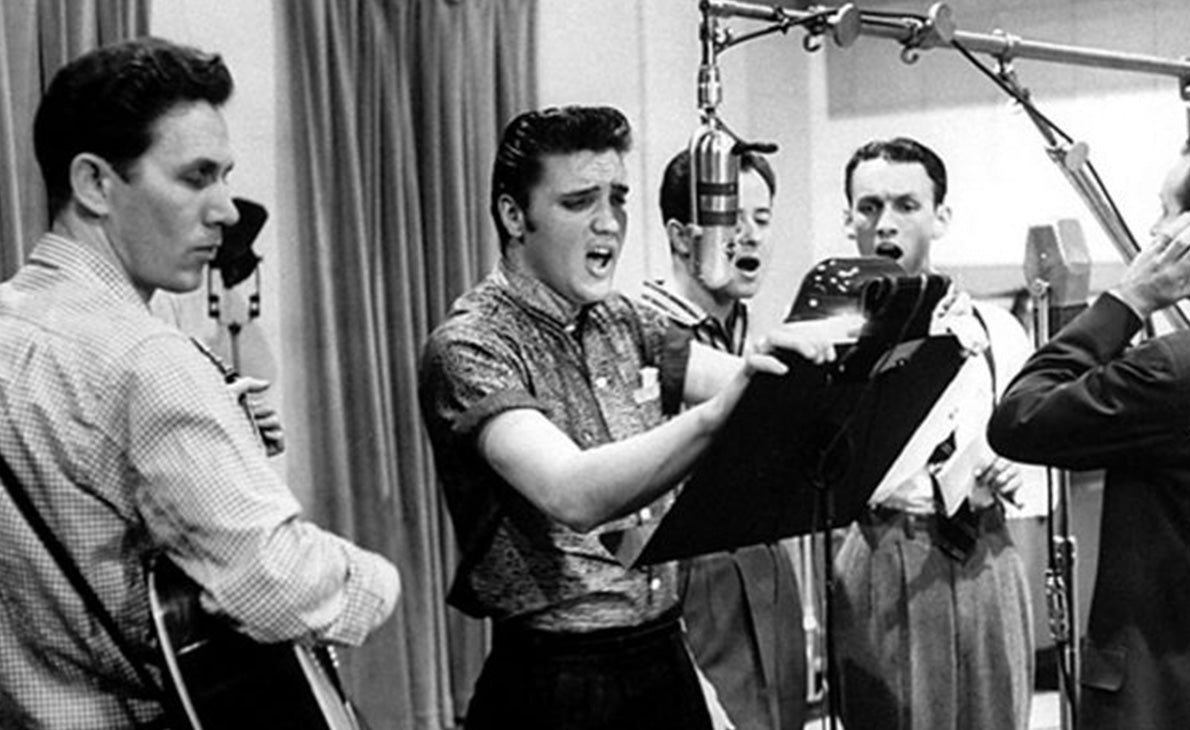The Retro Sounds of "Rockabilly"
It’s July 5th 1954. It’s surging past 90 degrees outside but inside Sam Phillips’ recording studio things were about to heat up even more. On that day, it can be argued that Elvis “the King” Presley accidentally goofed his way into creating the genre of rock ‘n roll, but at the very least the spirit of the “Rockabilly” music movement was formed.
With Elvis Presley on vocals, Scotty Moore providing fill and electric guitar riffs, Bill Black on upright bass and drummer D.J. Fontana the “Rockabilly” sound found its way into the pages of history. The sound was filled with expressive vocals, slap style bass and the infamous Phillips “Sun Echo” studio sound effect combined to make a blueprint that would become wildly popular for generations to come – the mixture of country western and rhythm and blues would be dubbed “Rockabilly”.

The foursome including Elvis ended up touting this new sound throughout the southern United States for 1954 and 1955 both igniting audiences and inspiring a completely new style of musician to emerge. In addition to this new sound emerging, a number of already established country musicians such a Buddy Holly and Marty Robbins were also making the switch to the “Rockabilly” style. Believe it or not, almost all of the “Rockabilly” style music recorded during the early years was by individuals who were directly influenced by Elvis – and this was all prior to his first ever big record deal.
After signing with RCA and recording in Nashville, Elvis would then go on to captivate millions across the world with his performances on prime-time television and equally as momentous record sales. Following Elvis’ success, artists like Jerry Lee Lewis, Roy Orbison, Warren Smith, Billy Lee Riley, Sonny Burgess, Carl Perkins, and more would capitalize on this national sensation. By the end of the 1950s, after the initial intrigue had worn off and more sounds entered into the genre (such as saxophone, background vocals, piano), the original “Rockabilly” sound was no longer the same and incidentally, interest had tapered off in favor of more popular styles.

“Rockabilly” ended up seeing a pop-culture resurgence in the late 1970s for a variety of reasons, but many attribute this to Elvis’ passing. Even to date, Rockabilly lives on in a subculture that celebrates the legacy sound and period specific characteristics such as 50s fashion, car culture, and for many the “good-ol” American Dream ideals that people found solace in during the years following World War II. Rockabilly music takes people back to a time of simple hope and a celebration of American culture.



